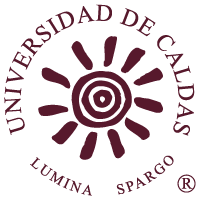| dc.contributor.author | Hoyos Valdes, Diana | spa |
| dc.date.accessioned | 2006-12-22 00:00:00 | |
| dc.date.available | 2006-12-22 00:00:00 | |
| dc.date.issued | 2006-12-22 | |
| dc.identifier.issn | 0124-6127 | |
| dc.identifier.uri | https://revistasojs.ucaldas.edu.co/index.php/discusionesfilosoficas/article/view/580 | |
| dc.description.abstract | El artículo muestra la forma en que la epistemología de las virtudes  puede resolver algunos de los problemas epistemológicos clásicos, y la manera en que puede lograrse una concepción integrada de las  variantes confiabilista y responsabilista de la epistemología de las virtudes. | spa |
| dc.description.abstract | This paper shows the way in which Virtue Epistemology can solve some of the classical epistemological problems, and the way in which an integrated approach of the Reliabilist and Responsibilist variants of Virtue Epistemology can be achieved. | eng |
| dc.format.mimetype | application/pdf | spa |
| dc.language.iso | spa | spa |
| dc.publisher | Universidad de Caldas | spa |
| dc.rights | Derechos de autor 2006 Discusiones Filosóficas | spa |
| dc.rights.uri | https://creativecommons.org/licenses/by/4.0/ | spa |
| dc.source | https://revistasojs.ucaldas.edu.co/index.php/discusionesfilosoficas/article/view/580 | spa |
| dc.subject | Virtue Epistemology | eng |
| dc.subject | Gettier Counterexamples | eng |
| dc.subject | Epistemic Luck | eng |
| dc.subject | Skepticism | eng |
| dc.subject | Epistemic Goods | eng |
| dc.subject | Reliabilism | eng |
| dc.subject | Responsibilism | eng |
| dc.subject | Sosa | eng |
| dc.subject | Zagzebski | eng |
| dc.subject | Greco | eng |
| dc.subject | Epistemología de las Virtudes | spa |
| dc.subject | casos Gettier | spa |
| dc.subject | fortuna epistémica | spa |
| dc.subject | escepticismo | spa |
| dc.subject | bienes epistémicos | spa |
| dc.subject | Confiabilismo | spa |
| dc.subject | Responsabilismo | spa |
| dc.subject | Sosa | spa |
| dc.subject | Zagzebski | spa |
| dc.subject | Greco | spa |
| dc.title | Teoría de las virtudes: Un nuevo enfoque de la epistemología (parte ii). Desafíos externos y lucha interna | spa |
| dc.type | Artículo de revista | spa |
| dc.type | Sección Artículos | spa |
| dc.type | Journal Article | eng |
| dc.identifier.eissn | 2462-9596 | |
| dc.relation.citationendpage | 113 | |
| dc.relation.citationissue | 10 | spa |
| dc.relation.citationstartpage | 89 | |
| dc.relation.citationvolume | 7 | spa |
| dc.relation.ispartofjournal | Discusiones Filosóficas | spa |
| dc.relation.references | ALSTON, W. P. (1989) Epistemic Justification: Essays in the Theory of Knowledge, Cornell University Press. | spa |
| dc.relation.references | ALMEDER, R. (1974) “Truth and Evidence”, The Philosophical Quarterly, 24. | spa |
| dc.relation.references | ARISTÓTELES (1947) Obras completas, Editorial Anaconda. | spa |
| dc.relation.references | BENNETT, J. (1988) Locke, Berkeley, Hume: temas centrales, Universidad Nacional Autónoma de México. | spa |
| dc.relation.references | BONJOUR, L. (1985) The Structure of Empirical Knowledge, Harvard University Press. | spa |
| dc.relation.references | BUTCHAROV, P. (1998) Skepticism about the external world, Oxford University Press. | spa |
| dc.relation.references | CLARK, M. (1963) “Knowledge and Grounds: A Comment on Mr. Gettier’s Paper”, Analysis, 24. | spa |
| dc.relation.references | CODE, L. (1987) Epistemic Responsibility, University Press of New England. | spa |
| dc.relation.references | COFFA, A. (1972) “Notas para un esquema de la filosofía de la ciencia contemporánea”, en Crítica, Vol. 6, Nos. 16-7. | spa |
| dc.relation.references | DAVID, M. (2001) “Truth as the Epistemic Goal”, en Knowledge, Truth and Duty, Matthais Steup (editor), Oxford University Press. | spa |
| dc.relation.references | DEPAUL, M. & ZAGZEBSKI, L., editores (2003) Intellectual Virtue: Perspectives from Ethics and Epistemology, Oxford University Press. | spa |
| dc.relation.references | DRIVER, J. (2000) “Moral and Epistemic Virtue”, en Knowledge, Belief, and Character, Axtell, G. (editor), Rowman & Littlefield. | spa |
| dc.relation.references | ENGEL, M. (1992) “Is Epistemic Luck Compatible with Knowledge?”, Southern Journal of Philosophy, Vol. XXX, No. 2. | spa |
| dc.relation.references | FELDMAN, R. (1974) “An Alleged Defect in Gettier Counter-Examples”, Australasian Journal of Philosophy, 52. | spa |
| dc.relation.references | FLORIDI, L. (2004) “On the logical unsolvability of the Gettier problem”, Synthese, 142. | spa |
| dc.relation.references | FRIEDMAN, M. (1966) “The Methodology of Positive Economics”, en Essays In Positive Economics, University of Chicago Press. | spa |
| dc.relation.references | GARCÍA, C. (2002) “Gettier cases and normal reasoners”, presentado en The Sunshine State Philosophy Conference, Florida State University. | spa |
| dc.relation.references | GETTIER, E. (2000) “Is Justified True Belief Knowledge?”, en Kim & Sosa. | spa |
| dc.relation.references | GRECO, J. (2000) “Virtues and Vices of Virtue Epistemology”, en Kim & Sosa. | spa |
| dc.relation.references | ---------- (2003) “Knowledge as Credit for True Belief”, en DePaul & Zagzebski. | spa |
| dc.relation.references | HAACK, S. (1997) Evidencia e Investigación. Hacia la reconstrucción en epistemología, Editorial Tecnos. | spa |
| dc.relation.references | ---------- (2000) “A Foundherentist theory of empirical justification”, en Kim & Sosa. | spa |
| dc.relation.references | HETHERINGTON, S. (1999) “Knowing Failably”, Journal of Philosophy, 96. | spa |
| dc.relation.references | HOOKWAY, Ch. (2004) “Cómo ser un epistemólogo de la virtud”, Discusiones Filosóficas, Vol. 5, No. 8. | spa |
| dc.relation.references | HOYOS, D. (2005) “Teoría de las virtudes: un nuevo enfoque de la epistemología (Parte I)”, Discusiones Filosóficas, Vol. 6, No. 9. | spa |
| dc.relation.references | KIM, J. & SOSA, E., editores (2000) Epistemology. An Anthology, Blackwell. | spa |
| dc.relation.references | LEHRER, K. (1965) “Knowledge, Truth and Evidence”, Analysis, 25. | spa |
| dc.relation.references | LOWY, C. (1978) “Gettier’s Notion of Justification”, Mind, New Series, Vol. 87, No. 345. | spa |
| dc.relation.references | LYCAN, W. (2006) “On the Gettier Problem Problem”, en Epistemology Futures, editado por Hetherington, S., Oxford University Press. | spa |
| dc.relation.references | MILL, J.S. (1990) Utilitarismo, Editorial Altaya. | spa |
| dc.relation.references | MONTMARQUET, J. (1993) Epistemic Virtue and Doxastic Responsibility, Rowman and Littlefield. | spa |
| dc.relation.references | NAGEL, T. (1979) “Moral Luck”, en Mortal Questions, Cambridge University Press. | spa |
| dc.relation.references | PAPPAS, G. & SWAIN, editores (1978) Essays on Knowledge and Justification, Cornell University Press. | spa |
| dc.relation.references | PLATÓN (1983) “Menón”, en Diálogos Vol. II, Editorial Gredos. | spa |
| dc.relation.references | ---------- (1998) “Teeteto”, en Diálogos Vol. V, Editorial Gredos. | spa |
| dc.relation.references | POLLOCK, J. (2000) “Epistemic norms”, en Kim & Sosa. | spa |
| dc.relation.references | POPPER, K. (1988) Conocimiento objetivo, Editorial Tecnos. | spa |
| dc.relation.references | ---------- (1994) Conjeturas y Refutaciones, Editorial Paidós. | spa |
| dc.relation.references | PRITCHARD, D. (2003) “Virtue epistemology and epistemic luck”, Metaphilosophy Vol. 34, Nos. 1-2. | spa |
| dc.relation.references | ---------- (2005) “Virtue epistemology and the acquisition of knowledge”, Philosophical Explorations, Vol. 8, No. 3. | spa |
| dc.relation.references | ---------- (2006) Anti-Luck epistemology, vía internet en: http://www.philosophy.stir.ac.uk/staff/duncan-pritchard/publications.php | spa |
| dc.relation.references | QUINE, W. (1977) Las raíces de la referencia, Biblioteca de la Revista de Occidente. | spa |
| dc.relation.references | RIGGS, W. (1998) “What are the ‘Chances’ of Being Justified?”, The Monist, Vol. 81, No. 3. | spa |
| dc.relation.references | ---------- (2005) “Insight, Open-Mindedness, and the Highest Epistemic Good”, vía Internet en: http://www.ou.edu/ouphil/faculty/wriggs/abstracts.html | spa |
| dc.relation.references | ---------- (2002) “Reliability and the Value of Knowledge”, Philosophy and Phenomenological Research, 64. | spa |
| dc.relation.references | RUSSELL, B. (1973) “Los problemas de la filosofía”, en Obras Completas II, Editorial Aguilar. | spa |
| dc.relation.references | SARTWELL, C. (1991) “Knowledge is Merely True Belief”, American Philosophical Quarterly, 28. | spa |
| dc.relation.references | ---------- (1992) “Why Knowledge is Merely True Belief”, Journal of Philosophy, 89. | spa |
| dc.relation.references | SCRUTON, R. (1999) Filosofía moderna: una introducción sinóptica, Editorial Cuatrovientos. | spa |
| dc.relation.references | SEARLE, J. (1993) Intencionalidad, Tecnos. | spa |
| dc.relation.references | ---------- (1997) La construcción de la realidad social, Paidós. | spa |
| dc.relation.references | SOSA, E. (2000) “Reflective Knowledge in the Best Circles”, en Kim & Sosa. | spa |
| dc.relation.references | UNGER, P. (1968) “An Analysis of Factual Knowledge,” Journal of Philosophy, LXV, No. 6. | spa |
| dc.relation.references | WILLIAMS, B. (1976) “Moral Luck”, Proceedings of the Aristotelian Society, 50 (volumen suplementario). | spa |
| dc.relation.references | WITTGENSTEIN, L. (1953) Philosophical Investigations, Basil Blackwell. | spa |
| dc.relation.references | ZAGZEBSKI, L. (1994) “The inescapability of Gettier problems”, Philosophical Quarterly, Vol. 4, No. 174. | spa |
| dc.relation.references | ---------- (2003) “Intellectual Motivation and the Good of Truth”, en De Paul | spa |
| dc.rights.accessrights | info:eu-repo/semantics/openAccess | spa |
| dc.title.translated | - | eng |
| dc.type.coar | http://purl.org/coar/resource_type/c_6501 | spa |
| dc.type.content | Text | spa |
| dc.type.driver | info:eu-repo/semantics/article | spa |
| dc.type.version | info:eu-repo/semantics/publishedVersion | spa |
| dc.relation.citationedition | Núm. 10 , Año 2006 : Enero - Diciembre | spa |
| dc.relation.bitstream | https://revistasojs.ucaldas.edu.co/index.php/discusionesfilosoficas/article/download/580/505 | |
| dc.type.coarversion | http://purl.org/coar/version/c_970fb48d4fbd8a85 | spa |
| dc.rights.coar | http://purl.org/coar/access_right/c_abf2 | spa |





